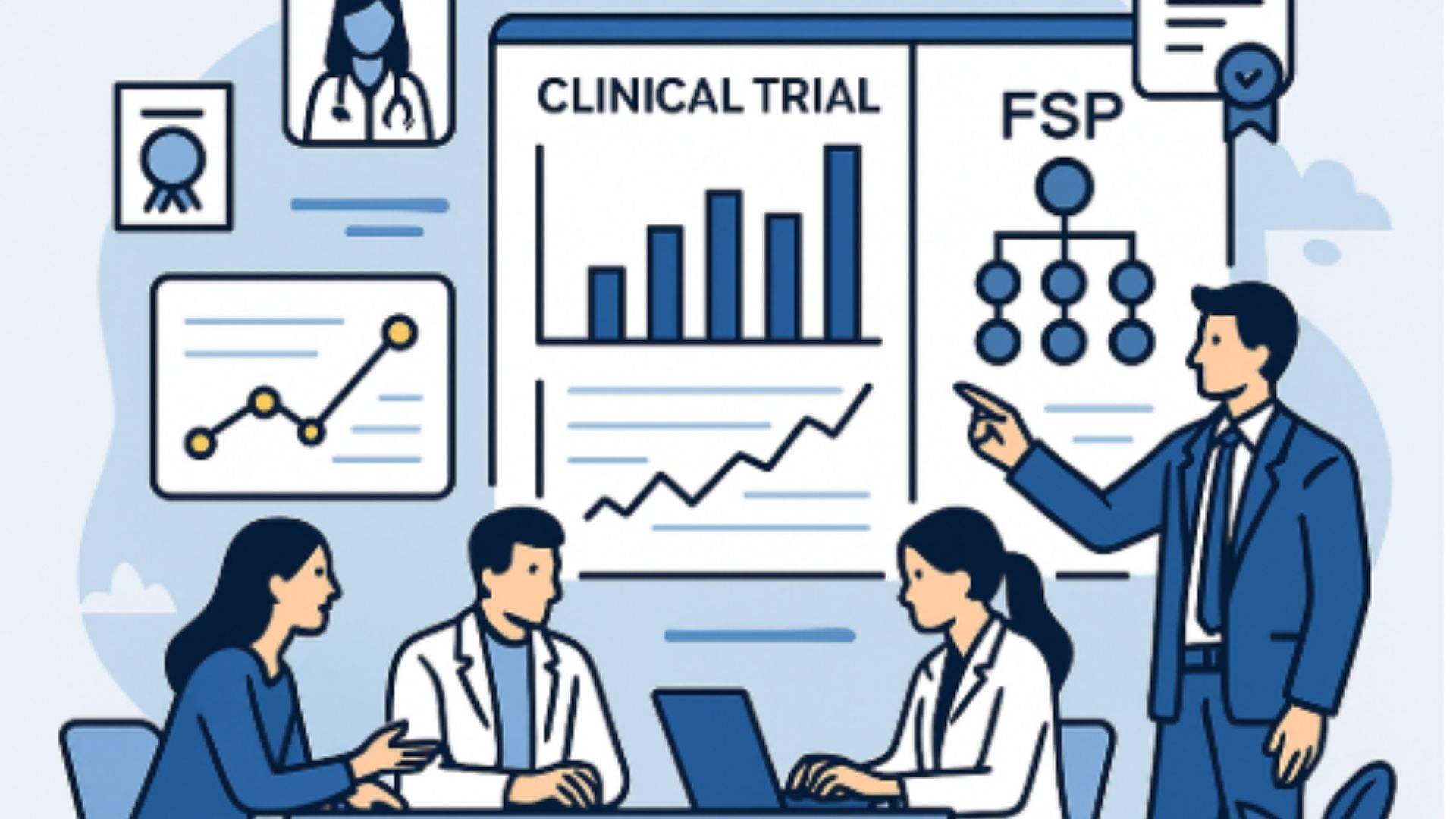By: ABRS- Academic Team

Introduction
In today’s fast-paced and increasingly globalized clinical research environment, sponsors are under pressure to deliver high-quality data, ensure regulatory compliance, and accelerate timelines—all while managing constrained resources. Traditional outsourcing models often struggle to provide the flexibility and oversight required to meet these demands. That’s where the Functional Service Provider (FSP) model has emerged as a strategic game-changer.
By enabling sponsors to outsource specific clinical functions—while retaining operational control and data ownership—the FSP model offers a tailored, scalable solution for long-term research programs. At ABRS, we have seen first-hand how FSP partnerships can improve agility, strengthen compliance, and drive real-world impact. Through our flexible delivery models and functional expertise across regions, we help sponsors execute with confidence—without compromising control.
This blog explores why the FSP model is becoming the preferred choice for clinical research sponsors worldwide, and how ABRS leverages it to deliver smarter, faster, and globally aligned clinical operations.
Strategic Integration Without Compromising Oversight
One of the main strengths of the FSP model is its ability to integrate seamlessly into the sponsor’s existing systems and processes. Unlike traditional outsourcing, FSP resources operate using the client’s platforms, SOPs, and reporting structures, which reduces administrative complexity, ensures operational continuity, and minimizes regulatory risk (PharmaSUG, 2023).
This level of integration allows internal teams to maintain direct oversight of key trial activities, even when critical functions are handled by external specialists. According to the Journal for Clinical Studies (2024), this operational synergy strengthens study governance, improves data traceability, and enables more agile decision-making.
Furthermore, the sponsor–FSP relationship is built on collaborative foundations: ongoing communication, active knowledge sharing, and cultural alignment. As highlighted by American Pharmaceutical Review (2023), this sustained collaboration ensures that outsourced resources do not merely perform assigned tasks—they become a strategic extension of the clinical team, bringing long-term value beyond technical execution.
Operational Efficiency with Strategic Gains

In addition to its structural flexibility, the FSP model is recognized for enhancing both operational efficiency and cost-effectiveness across clinical development programs. Unlike full-service outsourcing, FSP engagements allow sponsors to scale resources dynamically based on study needs—whether expanding geographic coverage, adjusting team size, or reallocating functional roles—without having to renegotiate full contracts or disrupt internal workflows (KPS Life, 2024).
This level of responsiveness has a direct impact on trial timelines and resource utilization, enabling faster study startup, reduced idle capacity, and leaner coordination structures. A recent white paper published by Biopoint Inc. (n.d.) highlights that FSP teams typically achieve faster onboarding and ramp-up times, as they are recruited for specialized roles and often embedded long-term within sponsor portfolios. This promotes continuity, reduces training overhead, and supports institutional knowledge retention.
Furthermore, because FSP teams are integrated into the sponsor’s systems and monitored by in-house management, they align more closely with study priorities and compliance expectations. This hybrid control structure empowers sponsors to accelerate decision-making and adapt faster to regulatory or protocol changes—without sacrificing quality or oversight (Biopoint Inc., n.d.).
An Increasingly Preferred Strategic Model
As the clinical research landscape grows in complexity—with tighter timelines, diverse regulatory demands, and increasing protocol deviations—sponsors are reevaluating their outsourcing strategies. Amid this shift, the Functional Service Provider (FSP) model is gaining traction as a preferred long-term solution that offers both operational agility and governance control.
According to a comparative white paper by KPS Life (2024), 41% of life sciences companies now favor the FSP model, compared to just 27% that opt for full-service outsourcing (FSO). This notable preference reflects sponsors’ desire to retain oversight of trial-critical functions such as data management, clinical monitoring, and regulatory operations, while delegating execution to specialized, embedded teams. The same report notes that FSP models are particularly valuable in long-term portfolios where predictability, consistency, and integration with internal systems are key success factors.
Beyond preference surveys, market intelligence supports this trend. A global industry analysis published by Verified Market Reports (2024) projects that the FSP market will grow from USD 17.4 billion in 2023 to USD 28.7 billion by 2030, reflecting a compound annual growth rate (CAGR) of approximately 7.5%. This expansion is not merely quantitative—it also signals a shift in how outsourcing is perceived: not as a cost-saving tactic, but as a value-generating partnership that enables sponsors to respond more effectively to real-time operational demands.
Another dimension that makes the FSP model attractive is its compatibility with enterprise-level strategies like digital transformation, decentralized trials (DCTs), and platform-based governance. As sponsors adopt centralized analytics, risk-based monitoring, and remote trial technologies, the FSP model provides the modularity and adaptability needed to embed new processes without overhauling entire operational frameworks (Verified Market Reports, 2024).
In summary, the FSP model is no longer a niche approach limited to tactical support—it is becoming a cornerstone strategy for scalable, compliant, and resilient clinical operations.
Conclusion:
As clinical development becomes more decentralized, data-driven, and regulatory-intensive, the FSP model has proven its value as more than just a staffing solution—it is a strategic framework for operational excellence. Its ability to integrate deeply with sponsor systems, adapt to evolving study demands, and support specialized functions across geographies makes it uniquely suited for today’s trials.
At ABRS, our Functional Service Provider solutions are designed not only to execute, but to elevate—ensuring that every project benefits from expert oversight, regulatory alignment, and cultural understanding across global regions. Whether supporting data management, clinical operations, or regulatory affairs, our FSP teams function as a true extension of the sponsor organization.
By choosing the FSP model—and a partner like ABRS—sponsors position themselves for scalable, compliant, and cost-efficient success in a complex and dynamic research landscape.
